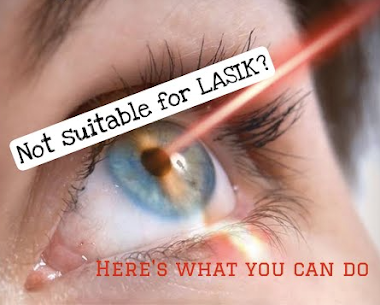Is Vision 20/20 after Lasik?
Introduction:
Millions of individuals get LASIK surgery yearly because it is a well-liked and successful method of correcting eyesight.
The common surgical treatment known as LASIK, or Laser-Assisted In Situ Keratomileusis, treats vision issues like nearsightedness, farsightedness, and astigmatism. LASIK is frequently used to achieve undistorted vision without needing glasses or contact lenses.
But a frequent query is if post-Lasik eyesight stays 20/20. Even though most patients have great post-operative visual results, several variables might impact the ultimate visual acuity. This article examines the elements that may affect the sharpness of vision following Lasik, giving readers a thorough picture of what to anticipate from the treatment. Read on to learn about 20/20 vision after Lasik, whether you are debating having surgery or already had it.
Understanding the purpose of and how to get LASIK
Lasik surgery is a popular option for treating astigmatism, nearsightedness, and farsightedness. The cornea, the transparent front portion of the eye, is reshaped during this refractive surgery to enhance the retina's capacity to concentrate light.
With the help of lasik surgery, people may have better, more precise eyesight without dealing with the inconvenience of corrective eyeglasses. Those sick of using corrective lenses like glasses or contacts to see well or who may have encountered discomfort from wearing them may find this surgery especially helpful.
An eye surgeon uses a laser to cut a tiny flap in the cornea during the Lasik treatment. This flap is raised, and a laser remodels the corneal tissue underneath. The cornea can be precisely reshaped to change its curvature and enhance the eye's capacity to concentrate light, leading to sharper vision.
The technique takes a few minutes per eye and is commonly done as an outpatient procedure. Most patients see an improvement in their vision right after surgery, with full recovery usually occurring in a few days or weeks.
Although Lasik surgery may be very successful in treating vision issues, it is crucial for anybody thinking about having it to get a thorough assessment to see if they are a good candidate. Factors such as the cornea's thickness, the degree of refractive error, and general eye health will be evaluated to determine if Lasik is a safe and suitable alternative.
Lasik surgery is a well-liked and successful treatment of vision issues. It tries to lessen or eliminate the requirement for corrective lenses, giving people better vision. To find out if you are a suitable candidate for Lasik surgery and to learn about the potential dangers and advantages, it is crucial to speak with a trained eye surgeon.
How can I guarantee 20/20 eyesight after having Lasik?
Following LASIK surgery, 20/20 vision requires appropriate post-operative care and adherence to predetermined rules. While LASIK is a very successful technique for vision correction, following these instructions is crucial to increase your chances of getting the best results.
1. Comply with the doctor's orders: Your surgeon will give you thorough post-operative instructions. To guarantee optimal healing and lower the risk of problems, it is essential to strictly adhere to following instructions.
2. Use the eye drops provided by your surgeon: After LASIK, your doctor will prescribe several eye drops to improve healing, decrease inflammation, and prevent infection. These drops must be used as instructed to keep the eyes lubricated and speed up healing.
3. Guard your eyes: It's crucial to guard your eyes during recovery from irritants or damage. Safety eyewear, especially in windy or dusty situations, such as goggles or sunglasses, may be necessary.
4. Avoid vigorous activities: It's critical to avoid activities that put a strain on the eyes or raise the possibility of eye injury in the initial weeks following LASIK. Swimming, physical interaction, and heavy lifting are all part of it. Based on your situation, your surgeon will offer precise advice.
5. Keep follow-up appointments: Your surgeon must see you regularly to check your recovery and handle any issues. Your surgeon will evaluate your vision and general eye health to ensure everything is on track for the best results.
6. Limit screen time and eye strain: Spending too much time in front of a screen or working close to it for extended periods, such as when reading or using a computer, can strain the eyes and perhaps slow the healing process. Regular pauses and good eye hygiene facilitate the best recovery.
7. Protect your eyes from UV radiation: Even after LASIK, UV rays can damage your eyes. Outdoors, wearing sunglasses with 100% UV protection can help save your eyes from harm and keep clear vision.
8. Maintain excellent general health: A balanced diet, regular exercise, and quitting smoking help optimal recovery after LASIK and contribute to overall eye health.
Remember that only some people with LASIK will have 20/20 vision. The surgery's success depends on several variables, including your original prescription and unique healing reaction.
However, you may increase your likelihood of getting and retaining crisp, clear vision after LASIK by carefully adhering to your surgeon's instructions and caring for your eyes throughout recovery. Always seek advice and direction specific to your situation from an eye care specialist.
Conclusion
In conclusion, many individuals with LASIK aim to have a 20/20 vision. While LASIK can dramatically enhance vision, it's crucial to remember that not everyone will get perfect 20/20 vision while it is feasible!
Several variables may influence the result, including the initial prescription, corneal thickness, and personal healing. Speaking with a licensed ophthalmologist is crucial to ascertain whether LASIK is the best procedure for your vision correction requirements.
Even though Lasik surgery can considerably enhance eyesight, it is important to be aware of any side effects and hazards. You can determine whether Lasik surgery is best by speaking with a qualified eye surgeon and assessing the benefits and drawbacks.
Before Lasik surgery, getting a comprehensive consultation with an experienced ophthalmologist is crucial. They will be able to evaluate the condition of your eyes and decide whether you are a good candidate for the treatment. They will also go through any other treatments that could be better suitable for your condition, as well as the possible dangers and advantages, with you.




Comments
Post a Comment